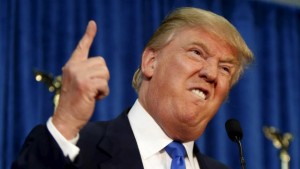Home » Commentary » Opinion » Explaining Trump: It’s the culture, stupid!
· Ideas@TheCentre

 Donald J. Trump’s January 20 inauguration as President of the United States will spark another round of punditry discussing the so-called ‘populist’ turn in Western democracies.
Donald J. Trump’s January 20 inauguration as President of the United States will spark another round of punditry discussing the so-called ‘populist’ turn in Western democracies.
Many commentators rightly attribute Trump’s election victory and similar political shocks in other countries (Brexit in the UK and the re-birth of One Nation locally) to economic factors. Globalisation has certainly created some disaffected ‘losers’ prone to support insurgent political movements that support economic nationalism.
However, the crisis in Establishment politics — the apparent divide between political elites and electorally significant swathes of ordinary voters — is also due to deeper cultural divisions that have undermined the principles of representative democracy in recent decades.
In general, ‘mainstream’ political parties have lost popular legitimacy because they refuse to discuss, let alone represent, ideas and values that political elites (across the left/right spectrum) deem to be politically incorrect and unfit for public debate.
For example, most of the elected representatives of the natural governing parties hesitate to entertain legitimate voter concerns about contentious issues such as border control and migrant integration because the default assumption among the political class is that ‘racism should not be pandered to’. (The opprobrium heaped on former Australian Prime Ministers Howard and Abbott for their government’s strong border protection policies mean the exception proves the rule.)
The problem is that ordinary voters still think they live in a democracy, and believe that the people have the right to discuss subjects that are integral to the future of the nation without being branded as bigots or ‘deplorables’.
The other problem is that politics abhors a vacuum. If the Establishment opts to dismiss and condemn by neglect the un-PC opinions of marginalised voters, new political players will fill the void and harvest the ballots of those who feel strongly about being silenced and unrepresented.
The real political lesson of the events of 2016 is that the elite’s politically correct agenda is counter-productive; it has simply served to establish the cultural pre-conditions for the populist push-backs in America, Britain and Australia.
Explaining Trump: It’s the culture, stupid!